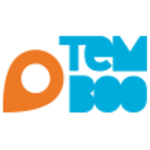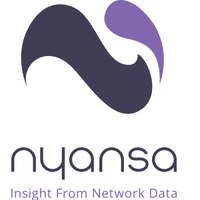Description

Bridgera IoT

Oracle Cerner
Comprehensive Overview: Bridgera IoT vs Oracle Cerner
Here's a comprehensive overview of Bridgera IoT and Oracle Cerner, focusing on their primary functions, target markets, market share, user base, and key differentiating factors:
Bridgera IoT
a) Primary Functions and Target Markets
- Primary Functions: Bridgera IoT is a custom IoT solution provider that specializes in creating tailor-made IoT applications and platforms. Their services include real-time data monitoring, analytics, device management, and integration with existing business systems. They focus on delivering end-to-end solutions that cover both hardware and software requirements.
- Target Markets: Bridgera IoT targets various industries, including healthcare, logistics, smart cities, manufacturing, and asset management. They cater to businesses looking for custom IoT solutions that address their specific operational needs.
b) Market Share and User Base
- Market Share: Bridgera IoT operates within a niche market of custom IoT solutions. Its market share is not as prominent as larger, more generalized IoT platforms but is significant within the realm of bespoke IoT development for medium-sized enterprises and specific industries.
- User Base: The user base for Bridgera IoT primarily consists of enterprises seeking customized and specialized IoT solutions rather than off-the-shelf products. Their clients typically require solutions that can be integrated into existing legacy systems or have niche requirements that larger platforms do not offer.
c) Key Differentiating Factors
- Customization: Bridgera IoT stands out by offering highly customizable solutions tailored to specific business needs. They collaborate closely with clients to develop unique IoT systems.
- Agility: As a smaller, specialized provider, Bridgera can offer faster and more flexible development cycles compared to larger IoT platforms.
- End-to-End Solutions: Bridgera provides a complete package, including hardware and software, which is particularly appealing to businesses without significant in-house technical expertise.
Oracle Cerner
a) Primary Functions and Target Markets
- Primary Functions: Oracle Cerner is a leading healthcare technology company that specializes in electronic health records (EHR) and health information technology solutions. Its primary functions include managing patient data, facilitating clinical workflows, supporting telehealth services, and driving population health management.
- Target Markets: Oracle Cerner targets hospitals, clinics, and healthcare systems globally. They provide comprehensive EHR solutions to enhance patient care, streamline operations, and improve data access across healthcare networks.
b) Market Share and User Base
- Market Share: Oracle Cerner is one of the top players in the healthcare IT sector, commanding a substantial share of the EHR market alongside competitors like Epic Systems. Its acquisition by Oracle has bolstered its position in the healthcare technology industry.
- User Base: The user base for Oracle Cerner includes healthcare providers of all sizes, from small clinics to large hospital networks. Their systems are used by millions of healthcare professionals worldwide to manage patient information and improve healthcare delivery.
c) Key Differentiating Factors
- Integration with Oracle: The backing of Oracle provides Cerner with robust cloud infrastructure, advanced analytics capabilities, and enhanced data security, setting it apart from competitors.
- Comprehensive Solutions: Oracle Cerner offers a comprehensive suite of healthcare solutions, extending beyond basic EHR functionalities to include telehealth, revenue cycle management, and health analytics.
- Global Reach and Scale: With a presence in numerous countries, Oracle Cerner can cater to the regulatory and operational needs of diverse healthcare markets worldwide, benefiting from Oracle’s global resources.
Conclusion
In summary, Bridgera IoT and Oracle Cerner serve different markets and functions, with Bridgera focusing on custom IoT solutions for various industries and Oracle Cerner concentrating on healthcare IT solutions, particularly EHR systems. The key differentiators lie in their scope of customization versus comprehensive healthcare offerings, with Bridgera excelling in tailored IoT services and Oracle Cerner leveraging Oracle’s infrastructure for broad healthcare applications.
Contact Info

Year founded :
Not Available
Not Available
Not Available
Not Available
Not Available

Year founded :
Not Available
Not Available
Not Available
Not Available
Not Available
Feature Similarity Breakdown: Bridgera IoT, Oracle Cerner
Bridgera IoT and Oracle Cerner operate in different domains with varying core functionalities, so comparing them directly might not present a fully aligned picture. However, here's a breakdown focusing on commonalities and distinctions in the context of IoT and healthcare IT solutions:
a) Core Features in Common
While Bridgera IoT and Oracle Cerner cater to different sectors, they have some overlapping core features related to data management and connectivity:
-
Data Integration and Management:
- Both platforms are designed to handle large volumes of data. Bridgera IoT focuses on IoT data, enabling collection, processing, and management, while Oracle Cerner deals with healthcare data, integrating patient information from multiple sources.
-
Real-Time Data Analytics:
- Bridgera provides real-time analytics for IoT systems, allowing for immediate insights and actionability on connected devices. Similarly, Oracle Cerner offers analytics solutions to provide healthcare professionals with insights drawn from patient records and other datasets.
-
Cloud-Based Solutions:
- Both offer cloud capabilities to store, process, and manage data, ensuring scalability and secure access.
-
Customizable Dashboards:
- Each platform provides customizable dashboard capabilities so that users can tailor the interface to highlight the most relevant data and metrics.
b) User Interface Comparisons
-
Bridgera IoT:
- Primarily designed to handle diverse IoT data, its interface focuses on device management, configuration, and real-time monitoring.
- Typically offers dynamic widgets and modules for understanding device status, alerts, and system health.
-
Oracle Cerner:
- Provides a comprehensive interface tailored for healthcare professionals. It focuses on patient engagement, electronic health records (EHR), appointment scheduling, and medication management.
- Interfaces are often more set towards the healthcare workflow, with a strong emphasis on usability within clinical settings.
c) Unique Features
-
Bridgera IoT Unique Features:
- Device Management: Specialized tools for managing and configuring IoT devices across various industries.
- IoT-Specific Analytics: Built to interpret and derive insights specifically from IoT sensor data, allowing predictive maintenance and operational efficiency.
-
Oracle Cerner Unique Features:
- Comprehensive EHR Solutions: Extensive support for electronic health records and patient-centric data management.
- Clinical Decision Support: Provides tools to assist healthcare providers in making informed clinical decisions, such as through built-in best practice alerts.
- Population Health Management: Tools to manage and monitor patient populations to improve healthcare outcomes.
Summary
While Bridgera IoT and Oracle Cerner share some common functionalities in data integration and real-time analysis, they cater to different audiences with distinct use cases. Bridgera IoT is more geared towards general IoT applications, while Oracle Cerner is specific to healthcare IT, each with unique features suited to their respective domains.
Features

Device Management
Data Analytics
Integration Capabilities
Security Features
Data Analytics and Reporting
Real-Time Device Monitoring

Patient Care
Data and Analytics
Operational Efficiency
Best Fit Use Cases: Bridgera IoT, Oracle Cerner
Bridgera IoT and Oracle Cerner serve distinct purposes and cater to different industry needs and business sizes, and understanding their best fit use cases is crucial for maximizing the benefits they offer.
a) Best Fit Use Cases for Bridgera IoT
For what types of businesses or projects is Bridgera IoT the best choice?
Bridgera IoT is a versatile, customizable IoT solution, making it ideal for businesses and projects that require tailored IoT applications. Here are some scenarios where Bridgera IoT might be the best choice:
-
Small to Medium-sized Enterprises (SMEs): Companies looking for cost-effective, scalable, and customized IoT solutions can benefit from Bridgera IoT's flexibility, which allows them to deploy IoT solutions without investing heavily in development from scratch.
-
Asset Tracking and Management: Businesses that need to track assets in real-time, such as those in logistics, supply chain, and fleet management, can leverage Bridgera IoT for real-time data insights, asset monitoring, and optimization.
-
Remote Monitoring: Bridgera IoT is well-suited for industries like manufacturing, utilities, or agriculture, where remote monitoring of equipment or environmental conditions is critical for business operations.
-
Healthcare Solutions: While not as specialized as Cerner in healthcare systems, Bridgera IoT can help in developing customized patient monitoring systems or telemedicine solutions for healthcare providers that require flexibility and quick deployment.
-
Energy Management: Companies focusing on smart energy solutions, including smart grids or consumption analytics, can utilize Bridgera IoT to monitor and optimize energy usage.
b) Best Fit Use Cases for Oracle Cerner
In what scenarios would Oracle Cerner be the preferred option?
Oracle Cerner is a leading provider of health information technology solutions, and it is particularly well-suited for:
-
Large Healthcare Organizations: Hospitals, healthcare systems, and large clinics that require comprehensive electronic health record (EHR) solutions will find Oracle Cerner's offerings robust and scalable, ideal for managing large volumes of patient data.
-
Integrated Health Systems: Organizations seeking integrated clinical, financial, and operational systems will benefit from Oracle Cerner’s comprehensive suite that promotes interoperability and streamlined workflows across different healthcare sectors.
-
Population Health Management: Cerner provides tools for analyzing population health data to improve care outcomes, making it a preferred choice for healthcare providers focusing on public health and community care.
-
Regulatory Compliance: Cerner's solutions are designed to maintain compliance with healthcare regulations such as HIPAA, making it suitable for entities that prioritize patient data security and privacy.
-
Research and Academic Institutions: Organizations involved in healthcare research can leverage Cerner’s data analytics capabilities for clinical trials and health outcomes research.
d) Industry Verticals and Company Sizes
How do these products cater to different industry verticals or company sizes?
-
Bridgera IoT:
- Industry Verticals: It caters to a wide range of industries including manufacturing, logistics, healthcare, agriculture, and energy. Its ability to provide custom IoT solutions allows it to address specific industry needs effectively.
- Company Sizes: Primarily targets SMEs that require flexible and cost-effective IoT solutions, but scalability options also make it viable for larger enterprises that do not want to commit to large, in-house IoT infrastructure.
-
Oracle Cerner:
- Industry Verticals: Primarily focuses on the healthcare industry, including hospitals, clinics, public health organizations, and academic research institutions. It provides industry-specific solutions designed to enhance healthcare delivery and management.
- Company Sizes: Best suited for large healthcare organizations or networks that require integrated and comprehensive solutions. Its sophisticated tools and support systems can also cater to medium-sized healthcare providers aiming to scale.
In summary, Bridgera IoT's customizable nature makes it suitable for various businesses looking for adaptable IoT solutions, whereas Oracle Cerner’s specialized healthcare solutions are best for large and integrated healthcare systems needing comprehensive and compliant health IT support.
Pricing

Pricing Not Available

Pricing Not Available
Metrics History
Metrics History
Comparing undefined across companies
Conclusion & Final Verdict: Bridgera IoT vs Oracle Cerner
When evaluating Bridgera IoT and Oracle Cerner, it's important to consider the distinct purposes they serve: Bridgera IoT focuses on IoT solutions, while Oracle Cerner is primarily a healthcare IT solution. Here’s a breakdown of their value, pros and cons, and recommendations for potential users:
Conclusion and Final Verdict:
a) Best Overall Value:
-
Bridgera IoT: Offers the best value for organizations looking to leverage IoT technology for real-time data analytics, device connectivity, and custom IoT solutions. It is especially suitable for businesses across various industries looking to integrate IoT with minimal investment in infrastructure.
-
Oracle Cerner: Provides the best value for healthcare organizations needing a comprehensive electronic health record (EHR) system. It benefits from a rich set of healthcare-specific functionalities, strong analytics tools, and a solid track record in implementing healthcare solutions.
Overall Value: The decision depends on the specific needs of the organization. For IoT-centric projects, Bridgera IoT presents the best value, while Oracle Cerner is unmatched in healthcare IT environments.
b) Pros and Cons:
-
Bridgera IoT:
-
Pros:
- Customizability tailored to business-specific IoT needs.
- Scalable solutions that adapt to business growth.
- Rapid deployment, minimizing the time to start up IoT operations.
- Cost-effective with lower initial setup costs, especially for SMBs.
-
Cons:
- May lack industry-specific features that larger, niche platforms might offer.
- Dependent on the integration capabilities with existing IT systems.
-
-
Oracle Cerner:
-
Pros:
- Extensive healthcare expertise, offering a wide range of features for patient care, data analytics, and regulatory compliance.
- Strong interoperability with other healthcare systems and platforms.
- Continuous updates and improvements aligned with healthcare regulations.
-
Cons:
- High complexity and potentially long implementation period.
- Potentially pricey, with significant costs involved for large-scale deployments.
- Requires comprehensive training for effective use.
-
c) Specific Recommendations:
-
For Users Needing IoT Solutions: Bridgera IoT is recommended due to its focus on providing tailored IoT solutions across industries ranging from logistics to manufacturing. It is best for organizations that want rapid deployment, scalability, and a cost-effective solution.
-
For Healthcare Organizations: Oracle Cerner is the recommended choice for hospitals, clinics, and other healthcare-related entities that demand robust EHR systems, comprehensive patient care management tools, and compliance with healthcare standards.
-
General Recommendation:
- Assess your organization's primary needs and strategic goals.
- Consider the scalability, cost, and integration capabilities of each system with your existing IT infrastructure.
- If possible, run pilot programs or proof-of-concept trials to gauge each system’s effectiveness before making a full commitment.
In summary, the choice between Bridgera IoT and Oracle Cerner should be guided by the industry-specific needs and strategic priorities of the organization, with Bridgera IoT excelling in IoT application and Oracle Cerner being a leader in healthcare IT solutions.
Add to compare
Add similar companies



